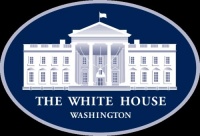Lots of faith and politics news today.
The WaPo reports that President Obama’s faith-based council is wrapping up a draft of its report this week. Some council members have said not to expect much from the report, but the Post reports there was a lively debate over whether groups that receive federal money should be required to remove or hide religious symbols when performing public (that is, state-funded) missions. “No clear consensus emerged,” the WaPo reports.
Meanwhile, Melissa Rogers, a Wake Forest Divinity School professor and faith-council member who has been tasked with coordinating the final report, has co-authored a report published today on “religious expression in American life” signed by a host of church-state experts, including Southern Baptist guru Richard Land and Reform rabbi/legal scholar David Saperstein.
According to a statement about the report, it “does not focus on what the law should be, but rather what the law is today. The joint statement seeks to provide accessible and useful information for Americans about this area of law, and enrich the conversation surrounding religious liberties.”
The thinking is that the document, if widely distributed, could lead to fewer church-state conflicts (and lawsuits) — think of it as a kind of treaty in the Culture Wars.
In other news, the White House faith-based office used its blog last week to introduce its point main in the Commerce Department, Cedric Grant. Grant’s resume includes a Master of Divinity from Princeton Theological Seminary, some work with Rep. Rangel, and some public policy training. But why does Commerce need a faith-based director, you ask? To encourage people of faith to participate in the census, apparently.
Here’s Grant: “Our most sizable contribution to date is our outreach efforts for the 2010 Census. Clergy are the most trusted voices in communities and are great advocates to bring awareness and participation in the 2010 Census. Community leaders, both faith-based and secular, know their communities intimately and service hard-to-count populations through their various programs. For these reasons, the faith-based community and neighborhood organizations are vital to ensure a complete count next year.”
Finally, Marc Chaves, a sociology professor at Duke Divinity School, said that the White House faith-based office has not significantly increased the number of religious groups that provide social services – President Bush’s stated goal in creating the office nine years ago, according to Associated Baptist Press. (Obama has different goals.)
Chaves found that: the proportions of congregations that provide social services (82 percent of all houses of worship), that have a staff member who devotes at least a quarter of their time to providing social services (11 percent) and that receive government funding for such services (4 percent) did not change between data collected in 1998 and in 2006-2007. In both surveys, about 6 percent of social services performed by congregations were done in collaboration with the government in some form (although not necessarily financial collaboration), while 20 percent were done in collaboration with a secular non-profit agency.
Chaves told ABP, “The faith-based initiative increased congregations’ interest in social service programs, but it did not change their behavior.”





